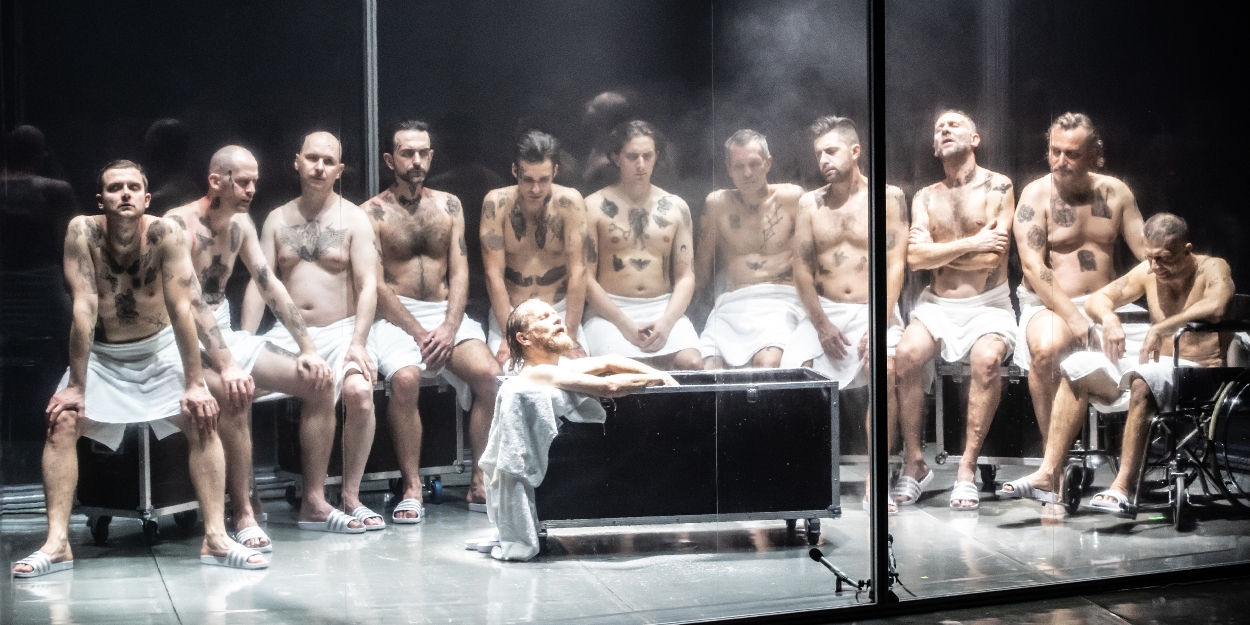Review: MARAT/SADE at Teatr Wspolczesny Wroclaw
The Persecution and Assassination of Jean-Paul Marat as Performed by the Inmates of the Asylum of Charenton Under the Direction of the Marquis de Sade.

The play was written in 1963 by Peter Weiss, a German writer, and even though the fact that it's almost 60 years old, it hasn't lost any of its actuality. We deal here with the interpretation box. Marcin Liber interpreted the play that interprets the French Revolution but it's also about the revolution itself.
Men's asylum where the play is prepared is full of individual forces of males colliding like building blocks in a closed box when shaken. They bump into each other and interact, sometimes explosively. I'm always a huge fan of a theater company that makes one body on the stage and it's absolutely the case here. Bravo! There are no women (the only female appearing on the stage just for a while is like an unexpected cutscene) but no wonder, the women's stories are consistently superseded in revolutionary accounts. Therefore, on this background, the figure of Charlotte Corday (hilariously played by one of the asylum's residents, Mariusz Bakowski) appears exceptionally bright.
The play in general is very clear and free of unnecessary distractions. I like the transparent message, sad disappointment with the revolution. Marat (you know him for sure if not from the revolution then from the painting by Jaques-Louis David, one of the first in the world showing the death of a non-clerical person) played by energetic Rafal Cieluch, is
possessed by the desire for revolution and sees no other way for France. Jerzy Senator as Marquise de Sade (if you associate this name with sadism you are correct) fifteen years after events is directing a play and conducts many philosophical dialogues with Marat and revolutionary thoughts. And to be clear it's not an optimistic conversation.
Despite the nihilistic accents, the play is very funny at times, and the finale in the sauna, among twelve defenseless, naked, and heat-worn men talking about the essence, is the perfect smoothing finish after the revolutionary chaos. We all need it. Like a purification of not only bodies but minds of actors and the public.
The music by Tomasz Leszczynski is like a tonic for the soul (and yes, it's punk). Besides music, there are many different unusual voices that make this play unique and interesting. It has many contemporary references, which are extremely accurate and invite the public to additional reflections. How to tell a story and who's deciding which part is correct? What happens after the revolution? Are we able to adjust our needs to a new reality? What to do if history is not aligned with accurate politics?
The play itself is not another revolution (thank God), but the time spent in the theater is wise and much needed as it's a kind of post-chaos reflection. What's next?
Photo: Natalia Kabanow
Reader Reviews

Videos

